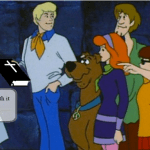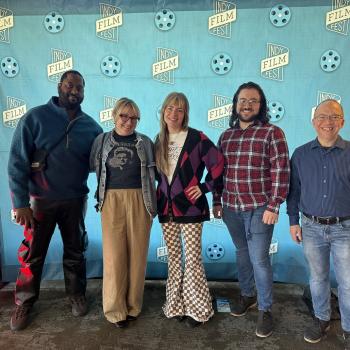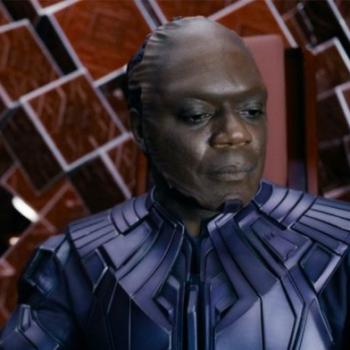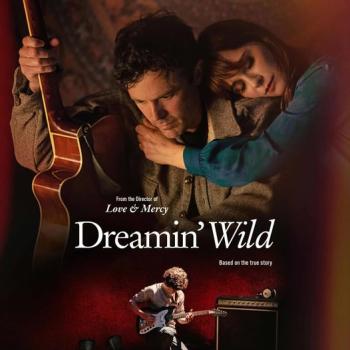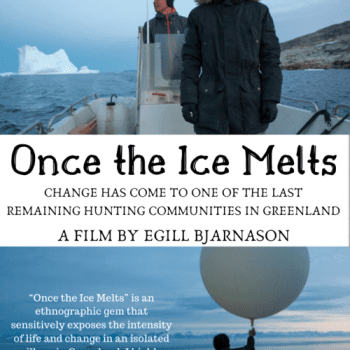I am delighted to share another episode of the ReligionProf Podcast, featuring as my special guests the team of filmmakers behind the new movie Hosea: Producers Avril Z. Speaks and Suzanne Watson and writer/director Ryan Daniel Dobson. The film explores how the story of Hosea and Gomer in the Bible might unfold in a modern-day setting, and told from the female protagonist’s perspective. It is a powerful and provocative movie that you’ll want to see, and once you’ve done so (since the podcast contains spoilers) or if you need persuading to do so, definitely listen to our conversation for the perspectives of the creative team behind the movie and an academic in the field of biblical studies on the movie. There are spoilers in my post below, as also in the podcast, but you can read on safely until I begin to discuss the content.
One of the delights in talking with the filmmakers was to discover that some of what I wondered they had also pondered, and that what I took away from the film was what they too hoped viewers would. Among the questions we discuss in the podcast are the following:
- Why call the movie “Hosea” when the male character who corresponds to him isn’t the focus?
- What are the underlying reasons for the film’s departures from biblical story? (The movie doesn’t just stick to the story that is usually reconstructed behind the biblical Book of Hosea and merely transfer it to a modern setting. It allows the story to move in some very significantly different directions. The movie is nonetheless about unconditional love and fidelity, even if in a radically different way and from a different perspective.)
- Any influence of biblical scholarship on movie? How could professors use the movie in teaching?
The movie impressed me inasmuch as there aren’t really flat characters or caricatures. All the characters are human beings with flaws and at least some redeeming or redeemable traits. There are discussion guides for churches and educators on the film’s website. Avril Speaks’ last film Jinn premiered at SXSW 2018 where it won the special jury award and that may also be of interest to you.
Now for an exploration of the details of the movie itself, including spoilers. The movie is set in Oklahoma, and begins with the two main protagonists, Cate and Henry, as children. Cate is already a photographer, and the they seem to be one another’s first love. Henry’s parents are divorcing and so he will be moving away. After he is gone Cate’s life carries on. We have already got the sense that she is neglected by her parents and that they squabble. At one point her father fails to show up to pick her up after school and another man claims that her father sent him. He rapes her, and it is from there that we fast forward to her as an adult 14 years later working as a prostitute. Henry returns, an architectural designer, whose latest project will be converting a church building into a restaurant. By keeping much of the original wood fixtures and things like that he will in one way be “saving” the church, but it will no longer be what it was. There’s so much symbolism in that, and it resonates with the transformation of the Hosea story in so many ways that I’ve only begun to reflect on and explore in my own mind. He reconnects with Cate and they marry, and have a daughter. Two years later, Cate still bears the scars both literally and metaphorically from her past experiences, having inflicted self-harm. Throughout, both as a prostitute and as a wife, Cate still practices photography and spends time at a gallery where she shows her photos to the director. She turns her pain into art. The aesthetic is a major element in the film’s plot. Henry envisages the future restaurant having a signature barrel-aged cocktail associated with each room, a “whole sensory thing.” Throughout the movie we regularly see statues of saints, primarily or exclusively of Mary I believe. These are not just or even primarily in places that have obvious religious significance. There is one on the dashboard of the rapist’s car. There is one on the roadside where it probably marks the location of a fatal accident which is the scene of one of the film’s most powerful moments. Ultimately Cate finds she cannot simply adjust to being the model wife that Henry’s career calls for. This is not only because of the scars on her arms, nor because Henry’s business partner is a former client of hers. The very notion of the alleged “perfection” of such model marriages is challenged precisely through the fact that the business partner and his wife are the kind of family that seems like such a model, and yet the husband frequenting prostitutes shows that the role-play of respectability hides all the dysfunction that exists and may be more visible elsewhere.
After Cate finds her way back to her old pimp, looking for a place to stay while she figures things out, Henry asks the business partner to buy him out of their project, using the money to pay off the pimp and clear any debt he feels Cate owes him and might hold over her. In the meantime, Cate has slit her wrists, and so Henry takes her to the hospital. When she awakes, she finds that he has left her a key in case he wants to come home, and money in case she doesn’t. This shows greater respect for her autonomy than he had earlier, when Cate had rightly pointed out that his speaking of them being “meant to be,” while pious sounding, is also manipulative. Cate doesn’t return home right away, but goes to a counseling discussion group. At one point she sees Henry flickering lights in the house, the way he used to with mirrors when they were children. In a powerfully open-ended climax that reminds me of prophets and parables within the Bible, Cate talks to Henry on the steps, emphasizing that she has finally come to accept that there is good inside of her right now, as she is, and not just if she plays some expected societal role, either as prostitute or as wife and mother. Rather than holding up Henry as Hosea and ultimately a stand-in for God as one who inherently exemplifies unconditional love, Cate articulates what unconditional love has to mean, saying “I can’t go up there. You can love me down here.” The film ends with the question of whether Henry is indeed capable of loving Cate as herself without forcing her to conform to a particular role or expectation. As such, it succeeds in offering a more powerful vision of human love that loves no matter what the other person has done and genuinely wants what is best for them. In doing so, it offers a theological challenge to those systems of thought and images that are brought into lives and communities as though they do not reflect human perspectives and frailties, and then human beings are called to conform to them, and made to feel worthless and inadequate when our lives do not match the unrealistic image.
In the podcast we discuss briefly how the film can be used in educational settings such as university classrooms focused on the Bible and film. The study guides on the website offer more resources not only for that purpose but also for churches and other communities. The discussion guides provide a great way to foster discussion not only about themes of love and redemption but the societal realities that are presented in the movie as part of characters’ experiences: rape, human trafficking, self-harm, and substance abuse.
This is an incredibly powerful movie, and I consider it a privilege to have seen it in advance of its release to the general public and to have had a chance to talk with the filmmakers about their vision. I hope that you’ll see it, that you’ll talk about it, and that you’ll let it lead to deep reflection and conversation about some of the most profound matters related to our identities and relationships with one another as human beings. And I hope that listening to the podcast and my conversation with the creative team behind the film, whether you listen before seeing the movie or after, will enhance what you get from the experience!



